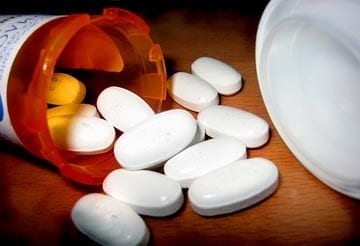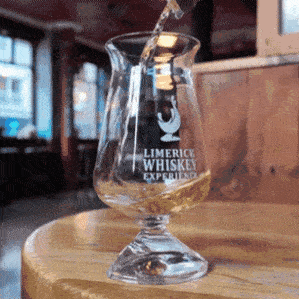
PEOPLE who abuse drugs rarely garner much sympathy from the population at large. And the criminal justice system is no less forgiving with the vast majority of offences which come before the district courts directly linked to misuse of drugs or drink.
At a meeting in Limerick City last week, Limerick Labour TD Conor Sheehan outlined why he and his party believe that decriminalising people with a problem by making it legal to possess small amounts of drugs for personal use is the right way forward.
The Labour TD says that, leaving the drug dealers aside, abuse of drugs needs to be treated as a health and societal problem, not a criminal one.
“You only have to walk the streets of our city to realise we have a huge problem. There are very sick people everywhere. We can’t police this issue away” he told the Limerick Post.
Every day in the district courts, judges and Gardaí handle a stream of offences that are either direct charges of possession of illegal substances or crimes committed as a result of ingestion of illegal substances.
Public order, assaults, shoplifting – the list of misery is inevitably followed by a solicitor getting on their feet and pleading that the client has a problem with substance abuse.
Labour and Sheehan want a model like the one introduced in Portugal, where possession of a certain amount of all drugs – including ‘hard’ drugs like heroine and cocaine – is decriminalised.
Instead of facing a judge and a possible prison sentence, the person with the drug problem would be referred to multi-agency supports for help.
“We need to take problem drug use out of the courts and wrap supports around people who need help. Criminalising, shaming, and stigmatising people in addiction leads to a system that undermines and dehumanises people who need our support, care, and compassion,” Deputy Sheehan said.
The Portuguese model
In 2001, Portugal decriminalised the personal possession of all drugs as part of a wider re-orientation of policy towards a health-led approach.
Possessing drugs for personal use is instead treated as an administrative offence, meaning it is no longer punishable by imprisonment and does not result in a criminal record and associated stigma. Drugs are, however, still confiscated and possession may result in administrative penalties such as fines or community service.
Drug death rates in Portugal fell significantly after the move and remain half that of the current Irish fatality rate which stands at 46.7 per million of population.
Whether it’s a sentence for possession of drugs or for criminal activity associated with problem drug use, the Labour TD believes that prison serves no purpose in tackling the root of the issue.
Overburdened prisons
Limerick is on record as being the most over-crowded prison in the country, with inmates regularly having to sleep on mattresses on the floor because there are no beds.
“Our prisons are at 115 per cent capacity,” Deputy Sheehan said. “It costs nearly €8,000 a year to keep one person in prison.”
Add to that the time taken up in court, Garda time policing and prosecuting, and funding the free legal aid system, which is everyone’s right and one which is availed of by most problem users, as holding down a job and an income are impossible in their circumstances – not a good return for taxpayer’s money, when the majority of offenders will be back in jail because they are released back to the streets without supports for their addiction.
A treatment regime which can be accessed by those who come to Garda attention for drug use is extremely important, but there are other factors at play, Sheehan told the Limerick Post.
“A lot of the time people are released from treatment and they have nowhere to go. They’re back on the streets, back into their old ways, and they relapse.”
Deputy Sheehan wants Limerick to become a “trauma-informed city”, where the question is “what happened to you?” rather than “what’s wrong with you?”
A trauma-informed city is one which officially recognises that there are issues behind the anti-social behaviour that goes hand-in-hand with problem drug use, he explains.
It involves citizens at every level being educated and policy makers bearing the issues in mind, all to create a safe space for everyone.
Safe spaces
One part of this, Deputy Sheehan said, needs to be a safe room, where people can take drugs in an environment where professional help is at hand if things go wrong and harm reduction policies such as needle exchange reduce the risk of spreading diseases.
Aodhan O’Riordan, Labour MEP and former Minister with responsibility for drugs, waged a long campaign for a supervised injection facility. Such a facility opened at Merchant’s Quay in Dublin last year and is currently the only facility in Ireland.
“We don’t have one in Limerick and the result is people injecting down lanes, behind crèches – that’s the reality of the situation,” Deputy Sheehan said.
“One of the biggest problems in Limerick at the moment is crack cocaine use. A safe consumption environment will stop people taking it on the streets.”
Sheehan is clear that what he and the Labour Party want is not the legalisation of dangerous drugs, or any kind of soft approach to the people dealing them, making huge profits and entrapping young people to do their dirty work.
“We can argue the details of what quantity of a drug constitutes personal use. But this is about facing the reality of drug use in our city,” he said.
“Drug dealers are the real criminal concern. But if more people are able to recover and stay well, they have fewer customers and that trade will become less lucrative”.
The Deputy intends to take the issue of a trauma-informed city status to Mayor of Limerick John Moran in the near future.
“We can’t police the issue away or make it disappear through the courts. It’s not safe in the city centre because very ill people are on the streets. People with nowhere to go,” he concluded.
Funded by the Court Reporting Scheme.


